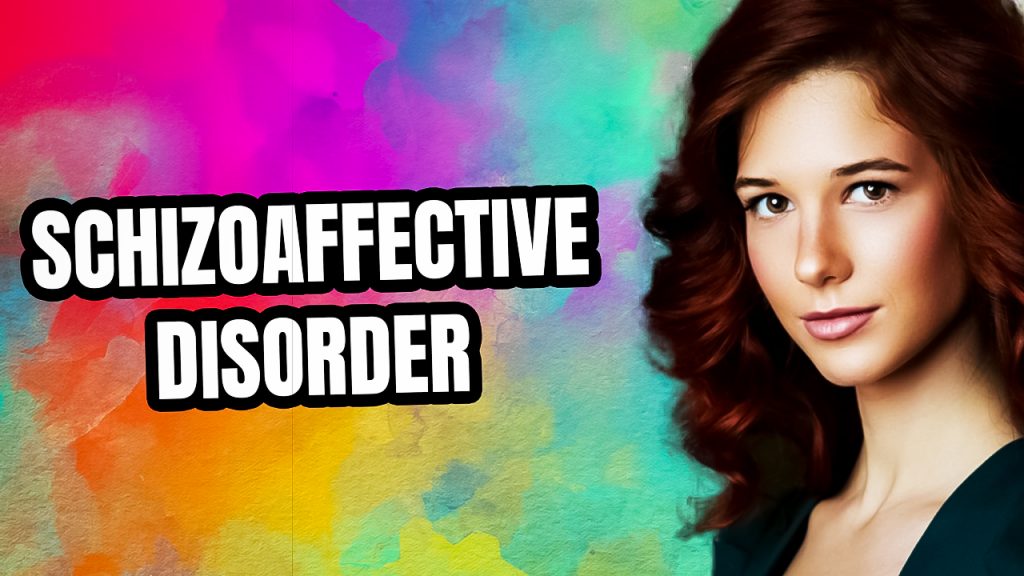What is Schizoaffective Disorder?

Schizoaffective disorder is a chronic mental health condition that combines symptoms of
schizophrenia and mood disorders such as depression or bipolar disorder. It is a complex and
challenging condition that affects the way individuals think, feel, and behave, causing significant
impairment in their social, occupational, and personal functioning. Schizoaffective disorder is
considered a relatively rare disorder, affecting approximately 0.3% to 0.5% of the population.
The symptoms of schizoaffective disorder are divided into two categories: positive and negative
symptoms. Positive symptoms refer to the presence of symptoms that are not typically present
in healthy individuals, such as hallucinations, delusions, and disorganized speech or behavior.
Negative symptoms, on the other hand, refer to the absence of normal behaviors or emotions,
such as social withdrawal, apathy, and emotional flatness.
In addition to these symptoms, individuals with schizoaffective disorder also experience mood
symptoms, including depression, mania, or both. These mood symptoms can occur at any time
during the course of the illness and can be severe and disabling. They can also affect the
individual’s ability to function normally in their daily life, making it challenging to maintain
relationships, hold a job, or take care of oneself.
Schizoaffective disorder is a complex and challenging condition that requires a comprehensive
treatment approach. Treatment typically involves a combination of medication and therapy.
Antipsychotic medications are commonly used to treat the positive symptoms of schizophrenia,
while mood stabilizers and antidepressants are used to manage the mood symptoms
associated with the disorder.
Psychotherapy is also an essential part of the treatment plan for individuals with schizoaffective
disorder. Various forms of psychotherapy, including cognitive-behavioral therapy, supportive
therapy, and family therapy, can help individuals cope with their symptoms, manage stress, and
improve their overall quality of life. Additionally, psychosocial interventions such as vocational
rehabilitation, social skills training, and occupational therapy can help individuals with
schizoaffective disorder improve their functioning in daily life.
The exact cause of schizoaffective disorder is unknown, but researchers believe that a
combination of genetic, environmental, and biological factors may play a role. There is evidence
to suggest that individuals with a family history of schizophrenia or mood disorders are at a
higher risk of developing schizoaffective disorder. Additionally, research has shown that
abnormalities in brain structure and function, as well as changes in the levels of certain
neurotransmitters, may contribute to the development of the disorder.
Diagnosing schizoaffective disorder can be challenging, as it requires the presence of both
mood symptoms and psychotic symptoms for a significant portion of the illness. Additionally,
differentiating between schizoaffective disorder and other mental health conditions, such as
schizophrenia or bipolar disorder, can be difficult due to the overlap of symptoms.
Psychologists play a critical role in the diagnosis and treatment of schizoaffective disorder. They
are trained to assess and diagnose mental health conditions, including schizoaffective disorder,
using standardized diagnostic criteria. They also work with individuals with the disorder to
develop and implement a comprehensive treatment plan that addresses their unique needs and
challenges.
In addition to diagnosis and treatment, psychologists can also provide support and guidance to
family members and loved ones of individuals with schizoaffective disorder. Living with a loved
one with a severe mental health condition can be challenging, and it is essential to have access
to resources and support to help manage the stress and emotional strain that can arise.
In conclusion, schizoaffective disorder is a complex and challenging mental health condition that
affects a relatively small portion of the population. It combines symptoms of both schizophrenia
and mood disorders, causing significant impairment in the individual’s social, occupational, and
personal functioning. While there is currently no cure for schizoaffective disorder, treatment
options, including medications and psychotherapy, can help manage symptoms and improve
overall quality of life. Psychologists play an important role in the diagnosis, treatment, and
support of individuals with schizoaffective disorder and their families.
This Post is Brought To You By BetterHelp